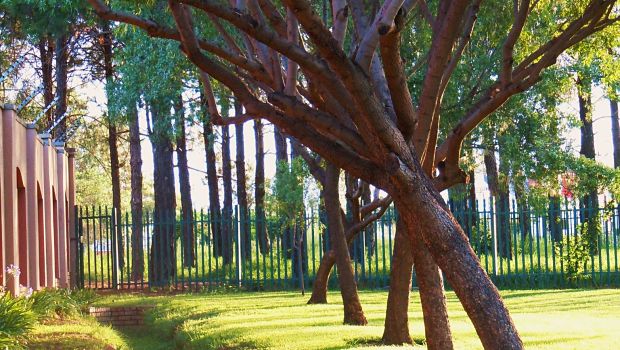Why I belong to a South African burial society
SOUTH AFRICA – Traditional funerals in South Africa are big affairs where even the poorest households spare no expense, so families must start saving years in advance.
On the first Sunday of every month, Vuyokazi Maneli dresses in a navy skirt, jersey and pink blouse and dons a blue beret. Then she leaves her one-bedroom, breeze-block house to attend a four-hour meeting with about 100 people dressed in similar uniforms. Like Maneli, they are all preparing for their own funerals.
11.7 million other South Africans are expected to attend similar meetings this month. It may sound macabre, but with more than 100,000 burial societies across the country, these special savings groups for funerals are booming.
Maneli already knows that her funeral will be an expensive affair. A traditional black South African funeral is an indicator of the subject’s status in life. She must honour old traditions and be buried among her ancestors at her place of birth – despite the fact that it is 1,000km from the Cape Town community where she’s made her life.
Being buried in a cheap pine coffin and dispensing with a marquee at the funeral in order to cut costs are simply not an option. “It is not done,” says Maneli, who’s been putting aside money for three years to cater for hundreds of mourners, as anyone from her Xhosa clan is welcome – there’s no such thing as formal invitations or RSVPs.
Millions of South Africans live in similar financial straits, with Statistics South Africa pegging current unemployment rates among black people at around 40%.
In order to safeguard her children from debt – or herself if any of her children should die before her – Maneli pays R110 a month to a burial society to ensure a R18,500 payout for her funeral costs and R9,000 for the funerals of any of her nine nominated dependents.
Missing a payment is always a worry – three missed payments would lead to her dismissal from the society with no payout. Sitting in her living room, which is bare of books or ornaments and contains only an old sofa and a television on a cheap display cabinet, she says she would sooner sell one of her meagre possessions than miss a payment. “I just have to pay it,” she says.
Maneli has no doubt that when she dies, her society will pay out. But, as essentially unregulated insurance schemes, not all burial societies treat their members as fairly.
Broken promises
Sanele Qumba, a sales representative in Cape Town, was caught short by a badly managed burial society. He’d been a member for 10 years by the time it came for his aunt’s funeral, but when he filed a claim the society refused to pay out the full amount he was owed.
“I managed to get her body to the Eastern Cape but did not get as much as I was supposed to,” said Qumba. “I could see the burial society was going downhill. They were beginning to ask extra levies to be able to pay out for funerals.”
He cut his losses and joined two other burial societies, to spread the risk and to ensure the combined payout of R23,000 would be enough for an ox to be slaughtered at his funeral, as would be expected due to his status as his family’s eldest son.
David Neves, senior researcher at the Institute for Poverty, Land and Agrarian Studies, believes that burial societies have stood the test of time in South Africa because, although they are largely unregulated, they have remained more cost-effective than formal providers, who predominantly view the poor as a market to be exploited.
But will the system become more formalised in South Africa in the future? One of the burial societies Qumba is a member of in the Eastern Cape, is underwritten by insurance giant Old Mutual, but it is in the minority that have formal recognition.
Maneli believes the banks have a way to go to compete with her burial society. When her husband died six years ago, he was signed up to a funeral policy offered by one of the country’s four major banks. While the bank required little information to take Maneli’s money, it asked for reams of paperwork before it would pay out. Maneli says she was dragged through a humiliating process. “It was very painful. I don’t even want to talk about it.”
For her and more than 11 million South Africans, a community-driven burial society offers better prospects than the uncertain bureaucracy of a faceless corporate entity.
While having somewhere secure to save your money is one of the main advantages that banks pitch to new customers who are used to managing their money through informal institutions, Maneli does not believe her money would be safer with them.
“In my burial society, we all live close by and know each other. No one can take the money – they have nowhere to run to.”


Leave a Comment
You must be logged in to post a comment.